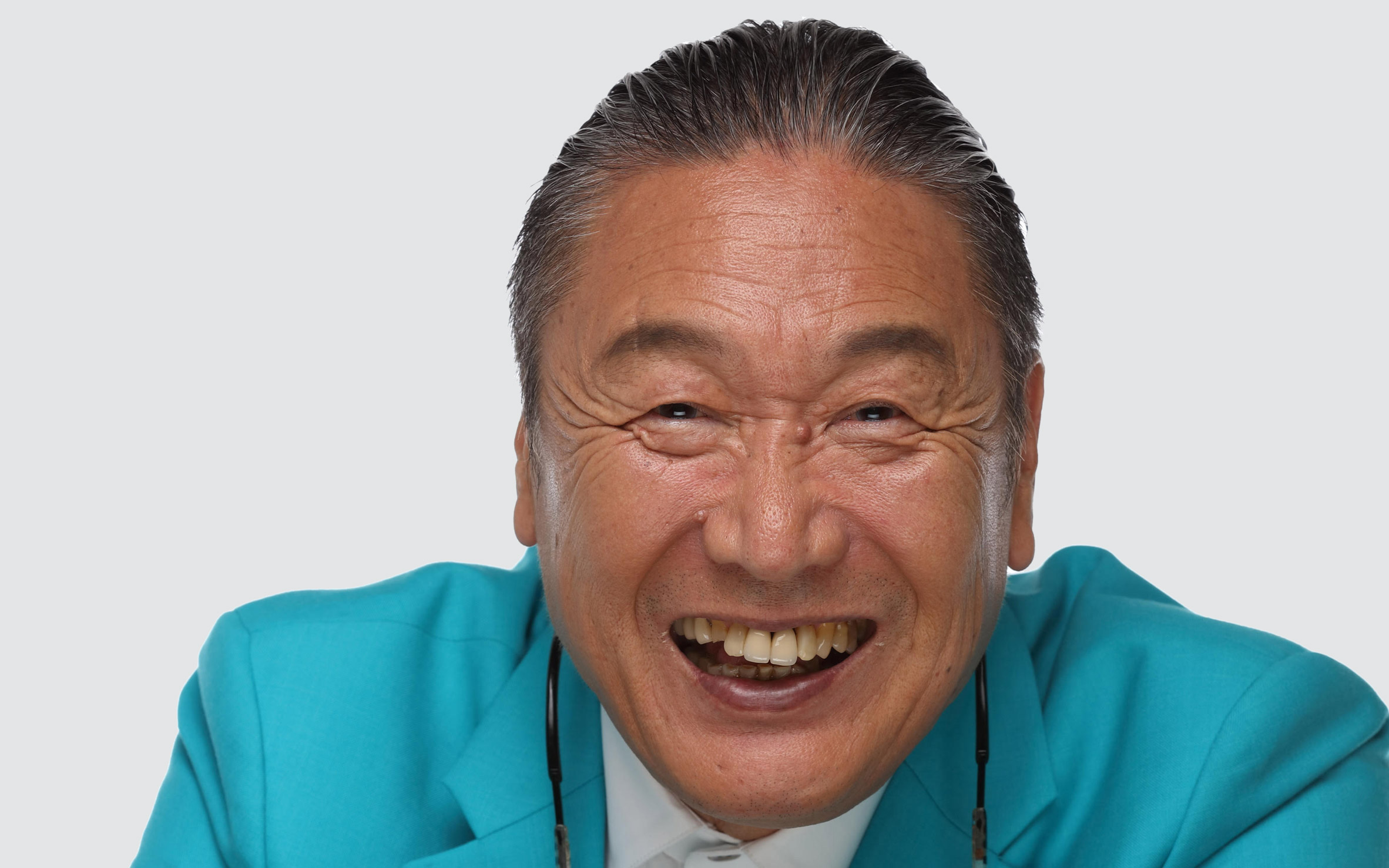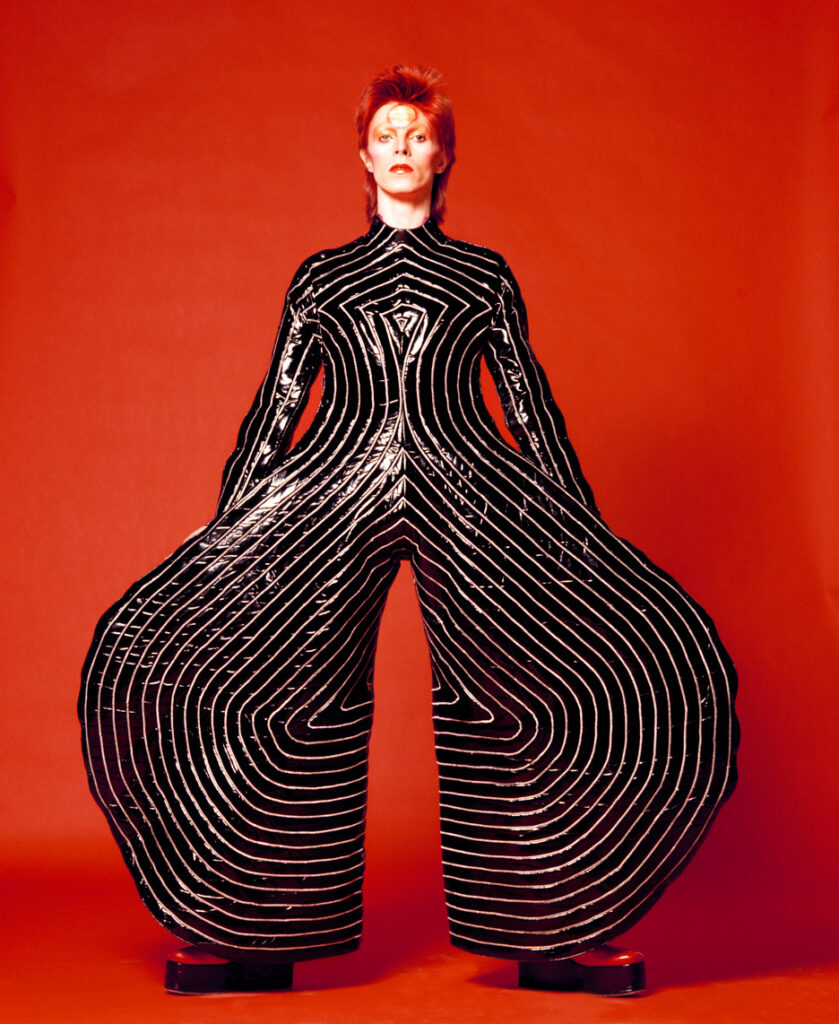
There’s perhaps never been a fashion designer as associated with a rockstar as Kansai Yamamoto is with David Bowie. Yamamoto, who died earlier this month at the age of 76, never quite achieved the commercial success of other avant grade Japanese designers, Issey Miyake, Yohji Yamamoto (no relation), and Rei Kawakubo of Comme Des Garçon, all of whom are still active and influential on both streetwear and haute couture today. But his earlier work for Bowie, was in some ways even more provocative. It was both gender bending and otherworldly, exactly what Ziggy Stardust required.
Yamamoto made his fashion debut at London Fashion Week in 1971, presenting a daring collection that took its inspiration from the concept of basara, an over-the-top kitsch style that can be thought of as the polar opposite of the minimalism usually associated with traditional Japanese culture. Unlike Kawakubo who never made clothes in anything other than a sober color palette of black and white, Yamamoto’s designs were colorful and wild, a pop-art version of traditional stage clothing.
The character of Ziggy Stardust was as influenced as much by traditional kabuki theatre as it was by Jimi Hendrix and Yamamoto deserves much of the credit. While Bowie was already familiar with kabuki, it was Yamamoto’s ability to apply the basara style to rock ‘n’ roll that took those early Bowie performances to a new level. Of course, the simulated fellatio performed by Bowie and guitarist Mick Robson didn’t hurt.
One of Yamamoto’s most famous costumes for Bowie is the Tokyo Pop jumpsuit he designed for the Aladdin Sane tour. The jumpsuit has plastic press studs around the ages that allow it to be torn away on stage to reveal what’s underneath.

Besides the jumpsuits he designed for Bowie, Yamamoto was known for his avant-garde kimonos. In the early 1990s, he retired from fashion for the most part, spending his time instead on multi-media performances that combined elements of music, dance, acrobatics, and traditional Japanese festivals. He also made clothes for other performers, including Elton John, and in 2013, Lady Gaga (proving he’d lost nothing of his outrageousness). Yamamoto leaves us with the motto, “Human energy is limitless” the force that drove his lifetime’s work.